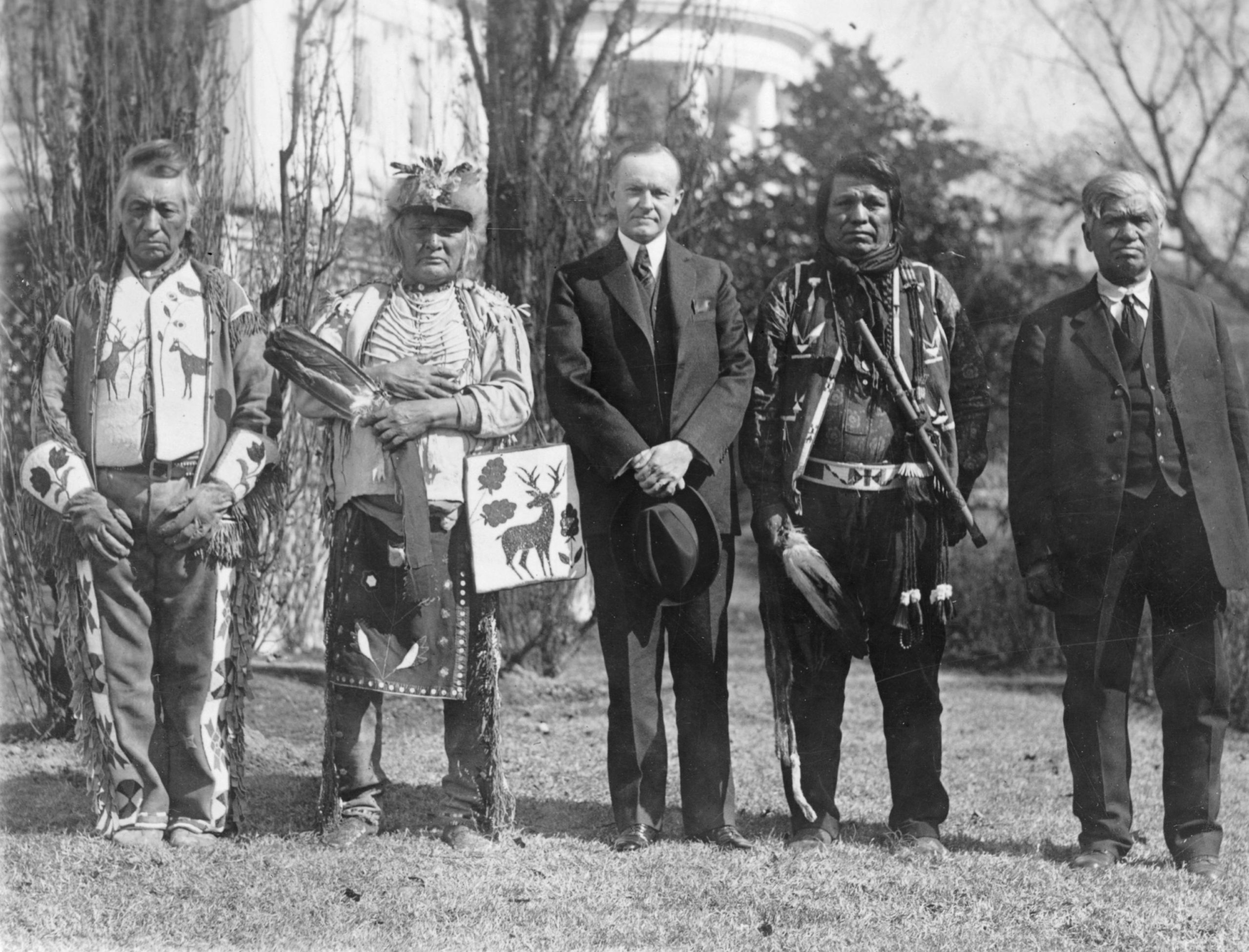Calvin Coolidge, the 30th president of the United States, was born on the 4th of July in 1882, in Vermont. He climbed the ladder to the presidency from a humble beginning. Born to a store-keeper merchant in Vermont, John Calvin Coolidge Senior, found his ambition to join the politics late in his life. After that, he fully devoted himself to it.
From a young age, Calvin was a serious boy. Though he possessed a quick wit, it was masked by the solemn expressions on his face. It is often cited that the reason for his soberness was the demise of his mother when he was 12 years old, and his sister, when he was only 18. The deaths of his loved ones wounded him badly from the inside, which was to shape his personality by all means.
Calvin believed in the exceptional power of words. He believed that oratory had shaped world politics and was an impactful tool to furnish the political system. While he was still a kid, he had heard the speech of President Harrison and had been really inspired to do something similar in the future. He delivered a speech on the power of oratory on his graduation from his school, the River Bank Academy, and was appreciated widely.
In his college, he was known as an outstanding orator and writer. The eloquence and powerful speeches were a part of his personality throughout his boyhood and later, his presidency.
Despite being an expressive debater, Coolidge was a shy and quiet man. He made only a few friends all his life, but the ones he made were there lifelong. In college, he was friends with Dwight Morrow, who along with another alumnus, Frank W Stearns, played a significant role in cheering and giving confidence to Calvin to join and remain in politics. He was inspired by not only his friends but his professor of philosophy, Charles Edward Garman. According to Garman, real power lies in the masses. He believed that they must know the truth as they are important assets of the state. Coolidge was to follow this principle throughout his life, thinking himself on the philosophical lines clinging onto them.
Calvin’s shy, and low-key personality demanded a supportive and vibrant life partner, which he did get. The opposite natures of the two got along very well. He always considered himself the luckiest man in America who did know the luxury of having a perfect life partner, Grace Coolidge.
Coolidge was a man of strict principles. He held onto them steadfast and perhaps nothing could move him. As a practicing lawyer, he charged much lower than his colleagues, for which he was often bashed but always refused to lend an ear to. He believed he was charging just the right amount for his services. He was an upright man, owing to the values instilled in him by his father.
He used to settle his client’s cases out of court as long as they could be, not running after money but holding fast to integrity and the value of humanity. He was an authoritative figure despite the diffident nature. It was evident during his time in office as governor of Massachusetts when he took hold of the worsening situation of the Boston police strike (1919). He managed to have them abandon the strike and get back to work, after proving that they had no excuse for the strike.
Coolidge was an economical person, living a simple life – even as a president. He had a conservative approach for everything – this is why he would reduce government spending as much as he could. He focused on improving the economic conditions, rightfully cutting down government spending. As a president, Coolidge was known as a formal and dignified personality, who often had little to say. He used the power of oratory in which he had a firm belief, to restore the faith of the community in White House, following scandals related to President Harding.
Coolidge’s reserved and calm nature earned him the title of Silent Cal. He was a believer in the notion that a public figure’s words went a long way, and he must be careful in the choice and delivery of words. He held to his dogma that the country must be ruled in the conservative manner, which proved successful for the USA of that time.
He probably could not keep the introvert side of his personality from engulfing the presidency. And that is why he kept America out of the more gigantic foreign matters. In the aftermath of World War I, he maintained his focus on the internal affairs of America, strengthening its economy and rehabilitating the global system of politics and government.
Conclusion
Perhaps a lot of Coolidge’s life was marred by deaths of his loved ones. In 1924, before the start of the presidency, he lost his young son, which again took out of his life, much glory and enthusiasm. Calvin worked to his utmost strength, but his era is often regarded as complacent in the face of looming disaster, by a few historians. His nickname Silent Cal was often a topic of jokes and anecdotes.
After his retirement, he led a somewhat secluded life. He didn’t adopt the ways of the modern world. This and many other worries about America and the impending economic crisis took a toll on his health. He departed from the world in 1933, about four years after leaving the White House.
US Presidents | ||

